
|
![]()
Greatest Films of the 1990s
1990 | 1991 | 1992 | 1993 | 1994 | 1995 | 1996 | 1997 | 1998 | 1999
Title Screen Film Genre(s), Title, Year, (Country), Length, Director, Description 




Aladdin (1992), 90 minutes, D: Ron Clements, John Musker




Bad Lieutenant (1992), 98 minutes, D: Abel Ferrara

Baraka (1992), 96 minutes, D: Ron Fricke
Resembling Koyaanisqatsi from 10 years earlier, this captivating, non-verbal photo montage was composed of a riveting stream of images from around the globe, juxtaposing nature with its main rivals - industrialization, humankind and technology. The title of the 70mm widescreen masterpiece was an ancient Sufi word translated, in part, as "a blessing." Its nature and exotic location photography was shot in a little over a year in 24 countries and in over 150 locations. Memorable images of natural wonder were the film's opening views of wintry Japanese mountains and a snow monkey in steaming hot springs, lush terraced rice fields in Bali, active volcanoes in Java and Hawaii, churning clouds in fast motion, red sandstone arches in Utah, time-lapse movements of stars across the night sky, a solar eclipse, crashing waves and lizards in the Galapagos Islands, flamingos in flight, a towering Argentinian waterfall, wildlife in the Serengeti and Masai Mara in Kenya, a Brazilian rainforest, and so much more.


Basic Instinct (1992), 127 minutes, D: Paul Verhoeven
Paul Verhoeven's erotic thriller was controversial for its overt sexuality, its depiction of two bisexual females as murderous psychopaths, and for its outrageous dialogue and twisting, convoluted and improbable plot by scriptwriter Joe Eszterhas. In the cat-and-mouse detective story's opening sex scene, an unidentified female with her face obscured (the film's brutal ice-pick murder suspect) was atop retired rock star Johnny Boz (Bill Cable) before she reached back and stabbed him to death with an ice-pick hidden in the sheets. San Francisco Detective Nick Curran (Michael Douglas) investigated a prime suspect, Boz' frequent sex partner: 30 year old sexy blonde Catherine Tramell (Sharon Stone) - a mystery novelist-writer. She denied any guilt, although she had penned a book that paralleled the crime being investigated - "I'd have to be pretty stupid to write a book about killing and then kill somebody the way I described it in my book. I'd be announcing myself as the killer. I'm not stupid." During the case, Curran discovered Catherine's open lesbian relationship with Roxanne "Roxy" Hardy (Leilani Sarelle), although he quickly fell in love with the suspect, and caused Roxy to become jealous. The detective himself (nicknamed "Shooter") was in therapy sessions with his own Internal Affairs police psychiatrist Dr. Beth Garner (Jeanne Tripplehorn), his bisexual ex-girlfriend (with whom he still was having violent misogynistic sex), for his violence-prone behavior that led to his accidentally shooting some tourists while high on cocaine. Another startling revelation was discovered - Beth confessed that she had known Catherine as a college classmate: "I met her at Berkeley. We were in some of the same classes." More murders ensued, including Curran's aggressive antagonist Lt. Nilsen (Daniel von Bargen) who suffered a gunshot-to-the-head. Catherine also described her own bad-luck college-days (UC Berkeley grad 1983) and her lesbian affair with a miffed and obsessed female (named Lisa Oberman or Hoberman) - suspiciously tying her in the past to Beth Garner. Another strange clue was that during their attendance at Berkeley as psychology majors, one of their psychology professors was murdered with an ice pick. Beth became another suspect when Curran learned that she was the elusive "Lisa Hoberman" who had lived in Salinas in 1987 where the drive-by, gun-shot murder of her husband Dr. Joseph Garner remained unsolved. Catherine told her lover - the detective - that she was planning to write a new novel based on him - who also became a murder victim. Two more deaths occurred - (1) Curran's detective partner Gus Moran (George Dzundza) was ice-pick stabbed to death during a planned meeting with Catherine's 'college roommate' in an Oakland office building, and (2) Curran shot and killed Beth who was suspiciously in the hallway of the building (claiming she had a message to meet Gus there). Due to further incriminating evidence, Beth seemed to be the ice-pick murderer. But then in the conclusion when Catherine was making love to Nick, paralleling the opening sex-murder sequence, it was left ambivalent whether she had reached for an ice-pick conveniently located under her side of the bed to murder him.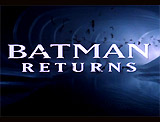



Batman Returns (1992), 126 minutes, D. Tim Burton
See Batman series.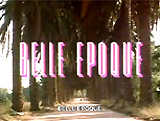


Belle Epoque (1992, Sp./Port.) (aka The Age of Beauty), 109 minutes, D: Fernando Trueba
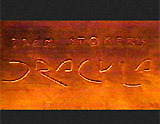

Bram Stoker's Dracula (1992), 130 minutes, D: Francis Ford Coppola




The Crying Game (1992, UK), 112 minutes, D: Neil Jordan
Writer/director Neil Jordan's powerful, layered suspense thriller/modern-day noir, which examines friendship, sexuality, love, political intrigue, race relations and human nature, was partly inspired by the classic Irish short story A Guest of the Nation by Frank O'Connor. The highly profitable independent film opens with the kidnapping of a British soldier named Jody (Forest Whitaker) by a group of IRA resistance/terrorists, led by a cold, calculating femme fatale Jude (Miranda Richardson), who had entrapped the soldier by seducing him while he was intoxicated. One of the captors, Fergus (Stephen Rea), strikes an unlikely friendship with the prisoner, both knowing that Jody would most likely be executed. The execution goes awry when Jody, trying to escape, is accidentally killed by a convoy of British army soldiers, who immediately disperse the IRA cell. Fergus goes into hiding and partial retirement from the IRA in London, but feels compelled to honor his promise to Jody that if he was killed, he would tell Jody's beautiful lover Dil (Jaye Davidson, whose magnificent gender-bending Oscar-nominated performance was in a role that was considered uncastable) of his fate. As a love triangle develops, Fergus soon finds himself attracted to Dil and valiantly protective of the lonely and aloof hairdresser, but both harbor a secret that would prevent them from romantically loving one another. The revelation of Dil's sexual secret is a Hitchcockian plot twist that audiences were urged not to reveal, which they honored. Complications arise when Jude shows up, and embroils Fergus in a dangerous assassination plot, using "wee black chick" Dil as collateral. The film was a smash hit both critically and commercially, and earned six Oscar nominations, including Best Picture and two nominations for Jordan for his direction and original screenplay (which he won.) Shockingly, Richardson would be nominated for her role in Damage (1992) rather than for this film. Academy Award Nominations: 6, including Best Picture, Best Director--Neil Jordan, Best Actor--Stephen Rea, Best Supporting Actor--Jaye Davidson, Best Film Editing--Kant Pan. Academy Award: 1, Best Original Screenplay--Neil Jordan.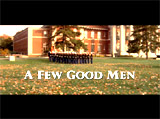


A Few Good Men (1992), 138 minutes, D: Rob Reiner
In this dramatic thriller, two Marines: Lance Cpl. Harold W. Dawson (Wolfgang Bodison) and Pfc. Louden Downey (James Marshall), were accused of murdering Pfc. William T. Santiago (Michael DeLorenzo), who was stationed at Guantanamo Bay, Cuba. Unhappy and desiring a transfer to another base, Santiago ratted on Downey for illegally shooting his pistol into Cuban territory. An illegal 'Code Red' command was ordered to haze Santiago as an extra-judicial disciplinary action, and he suffocated and died when his mouth was gagged and mouth taped. Downey's defense case was assigned to neophyte military lawyer Lt. Daniel Kaffee (Tom Cruise), known for plea-bargaining (and not taking cases to trial), assisted by more strident Lt. Cdr. JoAnne Galloway (Demi Moore) and Lt. Sam Weinberg (Kevin Pollak). The defense team traveled to Cuba and met with the base's commander, imperious Col. Nathan R. Jessup (Jack Nicholson). According to Jessup, he ordered Lt. Jonathan Kendrick (Kiefer Sutherland) to protect Santiago, and that he gave a transfer order, to have Santiago transferred to Andrews AFB on a military plane, but Santiago died the night before. Kendrick and Lt. Col. Matthew Andrew Markinson (J. T. Walsh) confirmed Jessup's account, later revealed to be untrue. The prosecutor in the case was Capt. Jack Ross (Kevin Bacon), while the Judge was (Colonel) Julius Alexander Randolph (J. A. Preston). Prosecutor Ross proposed a plea bargain, 6 months in prison and dishonorable discharge. But Galloway refused. Down the chain of command, Jessup (who hadn't actually approved a transfer) appeared to have ordered Kendrick to initiate a Code Red, carried out by the two marines. Outside of court, Markinson asserted to Kaffee that a transfer order was never issued by Jessup. In fact, Jessup had doctored flight records and logs that had revealed that Santiago could have left on an earlier flight before his death. Guilty over the cover-up he was involved in, Markinson committed suicide before officially testifying. In the court-martial hearing, Downey asserted that Kendrick had ordered the two to Code Red Santiago, but his testimony was discredited. On the witness stand, an infuriated Jessup was asked about Santiago's transfer order - logically, it was unnecessary if Santiago was not in danger of a Code Red. Also, there was no indication that Santiago had been told about a transfer and was preparing for it. Jessup lost it on the witness stand when he thought officers from Andrews AFB were there to contradict his account, and when he thought he was caught in contradictory lies. Kaffee directly asked: "Colonel Jessup, did you order the code red?" Jessup argued at length ("You can't handle the truth!"), tried to justify his rationale, and then shouted back: "You're god-damn right I did!" The case concluded with Dawson and Downey acquitted of murder, but given a dishonorable discharge.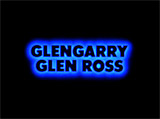

Glengarry Glen Ross (1992), 100 minutes, D: James Foley



Howards End (1992, UK), 140 minutes, D: James Ivory



Indochine (1992, Fr.), 153 minutes, D: Régis Wargnier



The Last of the Mohicans (1992), 114 minutes, D: Michael Mann



Like Water for Chocolate (1992, Mex.) (aka Como Agua Para Chocolate), 105 minutes, D: Alfonso Arau


Malcolm X (1992), 201 minutes, D: Spike Lee
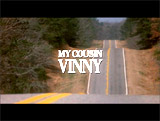


My Cousin Vinny (1992), 120 minutes, D: Jonathan Lynn
In the comical film's opening, two NYU college students on their way to UCLA via a southern route: Bill Gambini (Ralph Macchio) and Stan Rothenstein (Mitchell Whitfield), found themselves accused of the murder of a store clerk and robbery at a rural Alabama (fictional Beechum County) convenience store (Sac-O-Suds), where they had stopped. Bill contacted his cousin Vincent "Vinny" LaGuardia Gambini (Joe Pesci) to defend him, not knowing that Vinny (who recently became a lawyer) was an ex-auto mechanic who had no court or trial experience, and had flunked the bar exam six times. Heavy-accented Brooklynite and personal injury lawyer Vinny and his talkative and abrasive fiancee, unemployed Italian-American hairdresser Mona Lisa Vito (Marisa Tomei) arrived in town to defend the boys, and soon faced stern, upright and increasingly-frustrated Judge Chamberlain Haller (Fred Gwynne), who sent Vinny to jail overnight for contempt of court. During the trial, the D.A. Jim Trotter III (Lane Smith) produced three eye-witnesses to the crime, and Vinny eventually was able to effectively cross-examine them, especially by debunking witness Sam Tipton's (Maury Chaykin) account of preparing grits in only five minutes. But he needed Mona Lisa to help provide alternate testimony to counteract FBI agent George Wilbur's (James Rebhorn) testimony about automobile tire marks at the scene. Although resistant, Mona Lisa took the witness stand, and produced photos she had taken of the tire marks in front of the store. She claimed the real perpetrators drove a Pontiac Tempest with Positraction, something not installed on the boys' Buick Skylark. Her testimony proved decisive when Sheriff Dean Farley (Bruce McGill) revealed that two youths resembling Bill and Stan were arrested in Georgia - with a stolen Pontiac and the murder weapon.

Of Mice and Men (1992), 115 minutes, D: Gary Sinise



The Player (1992), 123 minutes, D: Robert Altman
Altman's scathing expose eviscerated Hollywood and its film-making industry. The character-intensive satire on contemporary Tinseltown morality and its wheeling and dealing starred Tim Robbins as shallow, back-stabbing studio executive Griffin Mill, hounded by a disgruntled scriptwriter whom he murders. Widely-praised was its sustained, unedited 8 minute opening dolly-shot, its four-dozen cameo appearances, and its dark comedy. The subtle opening and closing shots revealed the underlying joke of the premise - the movie was a 'film-within-a-film' about how the film came to be. The final line described Altman's own take on the film just seen: "It's a Hollywood ending, Griff. He marries the dead writer's girl (Greta Scacchi) and they live happily ever after."



Reservoir Dogs (1992), 99 minutes, D: Quentin Tarantino

A River Runs Through It (1992), 123 minutes, D: Robert Redford
Robert Redford's lyrical period drama about family relationships, set in and around Missoula in western Montana in the 1920s, was a deserved Best Cinematography winner. Its thematic story was about the contrast between two Scottish Presbyterian minister's sons: one serious and scholarly, and the other impetuous, self-destructive and wildly rebellious. With their father, the boys were metaphorically, spiritually, and literally linked together by the place of their greatest love and passion - fly fishing for trout in the Blackfoot River. [Note: Filming was actually many miles away at the Gallatin River south west of Bozeman because the Blackfoot River was no longer pristine but degraded due to logging, mining and grazing issues. At the time, Redford expressed environmental concerns, hoping the film's emphasis on the tranquility, peacefulness, and spirituality of nature would inspire people to keep many Western sites and rivers in their natural state.] The transcendent setting with its gorgeous, breathtaking scenery and cinematography certainly had a profound impact on the town of Livingston and on the sport of fly-fishing. In the film's deeply-felt, elegiac ending interspersed with lovely views of the sparkling, sun-kissed river flowing by, the elderly fly-fishing brother reflected (voice-over by Redford): "Eventually, all things merge into one, and a river runs through it."

Scent of a Woman (1992), 137 minutes, D: Martin Brest


Single White Female (1992), 107 minutes, D: Berbet Schroeder
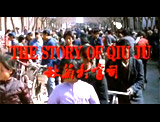


The Story of Qiu Ju (1992, China/HK) (aka Qiu Ju da guan si), 100 minutes, D: Yimou Zhang
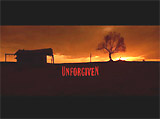

Unforgiven (1992), 131 minutes, D: Clint Eastwood
Actor/director Clint Eastwood's magnificent Western masterpiece and a Best Picture-winner. The award-winning and compelling film was a violent tale about retribution. It was the third western ever to win the Best Picture award. Circumstances forced a retired, poor, notorious ex-bounty hunter William Munny (Clint Eastwood), now a hog farmer, to resume his former occupation. In the 1880s frontier town of Big Whiskey, Wyoming, a prostitute's face had been brutally slashed by vicious cowboys, and her fellow co-workers had raised a $500 bounty. Joined by former sidekick partner and Kansas dirt farmer Ned Logan (Morgan Freeman) and aspiring, cocky gunfighter 'The Schofield Kid' (Jaimz Woolvett), they journeyed to the town to confront the corrupt, sadistic and autocratic Sheriff "Little Bill" Daggett (Gene Hackman), who had denied justice to the brothel's women. On the way to the town, Ned became the voice of conscience. He sensibly decided to return home after realizing he didn't want any more shootouts. However, he was captured by Little Bill and other cowboys, who whipped him for not cooperating, wrongly charged him with murder, killed him, and then propped his corpse up mounted inside a coffin. This set up the climactic, unforgiving ending when Munny took on a grim mission of moral revenge in loyalty to Ned. In a deadly and bloody showdown, Munny's nihilistic past was graphically brought back.

Wayne's World (1992), 95 minutes, D: Penelope Spheeris